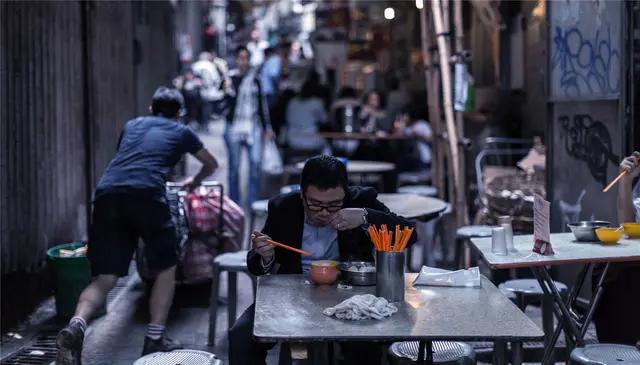Char siu, dai pai dong, siu mei, yum cha and milk tea are now officially part of the English language. The Oxford English Dictionary has - belatedly, some might say - included 13 more Hong Kong terms in its latest update.
Food-related terms dominated the list. The other terms added were compensated dating, kaifong, guanxi, lucky money, sandwich class, shroff and sitting-out area.
A long list of terms originating in Hong Kong have been added to the English dictionary over the years, including typhoon, amah, nullah, ketchup, godown and chop.
Singaporean English terms have also been added to the Oxford dictionary, including blur (“slow in understanding; unaware, ignorant, confused), ang moh (“a light-skinned person, esp. of Western origin or descent; a Caucasian”), sabo (“to harm, inconvenience, or make trouble for (a person); to trick, play a prank on”) and HDB (“a public housing estate”).
The full list of the new Hong Kong English words and their definitions
Char siu: roast pork marinated in a sweet and savoury sauce
Compensated dating: the practice of teenage students providing companionship or sex in exchange for money or gifts
Dai pai dong: an open-air food stall
Kaifong: traditional mutual aid organisations
Guanxi: the system of social networks and influential relationships which facilitate business and other dealings
Lucky money: red envelopes containing money typically handed out by elders and adults at Lunar New Year
Sandwich class: an informal term used to refer to the middle class
Milk tea: a drink made from black tea and milk, usually evaporated or condensed
Shroff: a cashier, especially at a car park
Sitting-out area: small recreational spaces provided in urban areas
Siu mei: generic name given to roasted meats
Yum cha: a type of Chinese-style brunch tea
Wet market: a market selling fresh meat and produce
(SOUTH CHINA MORNING POST)
 简体中文
简体中文

